How Do I Live the Rest of My Life?
How a 17-year-old with childhood cancer found hope.
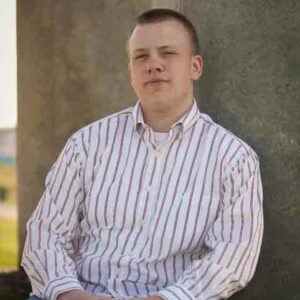
When I was diagnosed with childhood cancer at age 17, I struggled with fear, uncertainty and how it changed everything in my life. But one of the hardest questions I faced was, if I survive, how do I live the rest of my life?
It’s a question that many people with childhood cancer ask.
My journey begins
I grew up in Auburn, Washington, a smaller city one hour south of Seattle. When I was only nine years old, my dad died of colon cancer.
I didn’t necessarily think that I would face cancer, too, but then during the spring semester of my junior year, I started experiencing some extreme leg pain.
I was 17, healthy, and an athlete—I played on the golf team and had been selected to be captain of the team for my senior year. I had nothing to indicate that cancer would be a part of my story.
The sharp leg pain came out of nowhere and felt like shin splits. My mom took me to the doctor, who gave me an MRI. 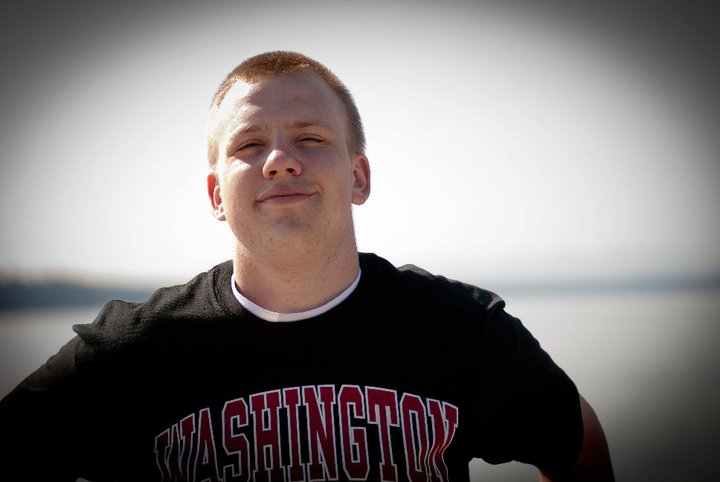
The call
That night, my doctor called us and told me they found a mass on my tibia that looked like cancer. She suggested we see someone at Seattle Children’s Hospital right away.
I remember praying and asking God, “Why is this happening to me?”
I was later diagnosed with Ewing sarcoma, a rare bone cancer often found in male adolescents. While the doctors gave me a favorable outlook of survival, I faced plenty of risks and uncertainties.
It also completely upended my social and academic life.
On March 1, 2010, I started chemotherapy and stopped going to school in person and seeing friends. It was a very lonely season.
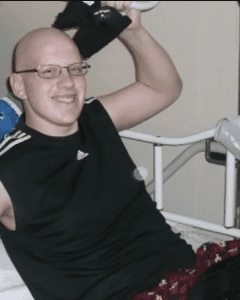
Questions about my future
Since I was young, the doctors gave me high doses of chemotherapy. However, it was a mixed blessing, because I wondered how the treatment would impact the rest of my life.
I wondered, what will my future look like? Will I be able to go to college someday? Will I be able to get married and have a family?
My treatment would also include major leg surgery, which raised more uncertainties: Will I be able to take care of myself physically in the years ahead? Will I ever be able to run again?
These were the tough questions I faced at only 17 years old.
How I found hope, strength and peace against cancer
From the beginning, I felt peace because I knew that God loved me and that I could talk with him about all the fears and uncertainties I was experiencing–that he was there to listen. I also had this sense that going through cancer was going to be a very challenging road.
What gave me hope and peace was knowing that my future belonged to Jesus. I believe that faith can move mountains—that God is able to do whatever he wants. This gave me hope.
I certainly needed hope for the struggles that lay ahead.
Getting surgery
I had surgery on my leg on June of 2010.
They performed a limb salvaging, replacing my tibia with a cadaver bone, anchored with titanium rod and screws. They hoped my bone would fuse to the cadaver bone over time.
Fortunately, they found a match, and my surgery was successful.
Meanwhile, I resumed chemotherapy to eradicate any remaining cancer.
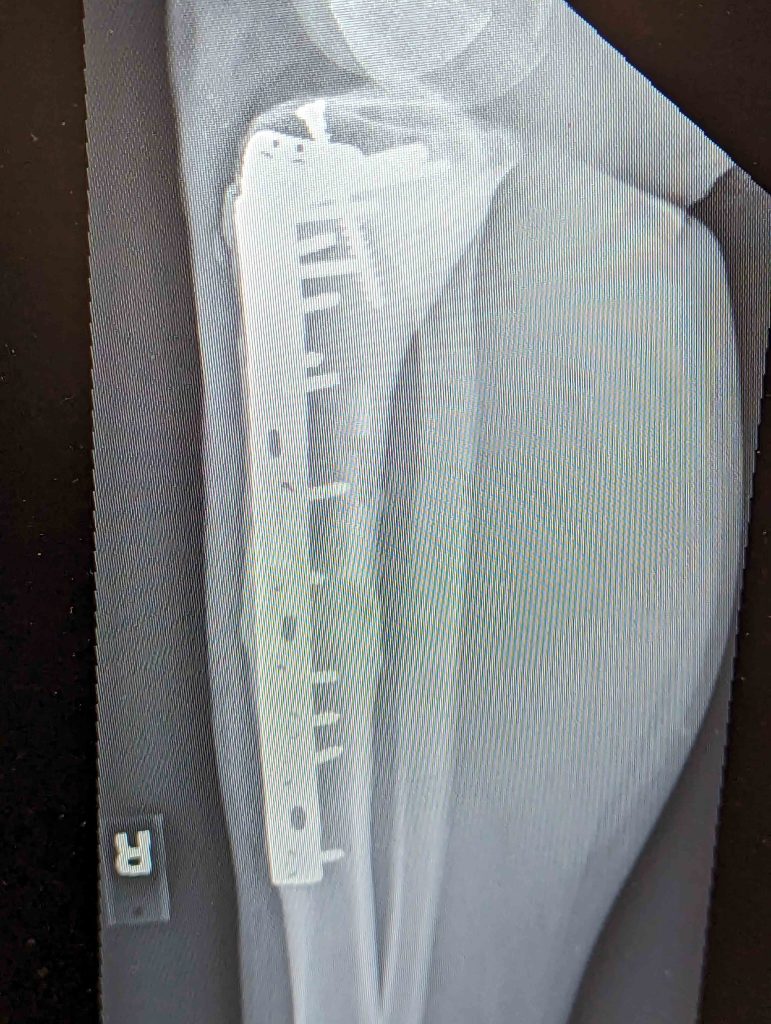
Identity crisis
I finished my treatment on October 19th, 2010, and I immediately went back to school the next day. It was a weird time.
Doctors declared me in remission, but I now faced loneliness and a crisis of identity—struggles common to childhood cancer survivors.
I wish people would have told me how isolating it is to have gone through something like childhood cancer. Also, because I walked on crutches for the next few months, I couldn’t play golf my senior year.
On a pedestal
People gave me a lot of attention because of surviving cancer. The newspaper featured my story and then Make a Wish Foundation restored my truck for me; my school held an assembly in my honor.
I didn’t love the attention. I wanted to just be Garrett, not the cancer kid.
People put me on this pedestal, and I wanted to prove them wrong—that I was not as good as they thought. I just wanted people to like me, but I had so much confusion about my identity and who I was after cancer.
The fear also lingered. I knew I was cancer free, but part of me wondered, for how long?
Spiritual struggle
I started rebelling against God and making poor choices, going to parties and drinking heavily.
During my treatment, I had grown close to God because I was so dependent on him. Now, post cancer, I began to think, maybe I don’t need God anymore.
It was a very dark and isolating season.
A new trajectory
In college, I continued to push God aside. One night I drank so much alcohol that I blacked out. Thankfully, a friend took me back to my dorm room. I woke up in the morning and thought, what am I doing with my life?
I was exhausted, especially spiritually. I decided to turn back to God. I stopped drinking, started to read my Bible, and began pursuing healthy relationships.
During that time, a friend introduced me to a girl named Michelle, who I later married.
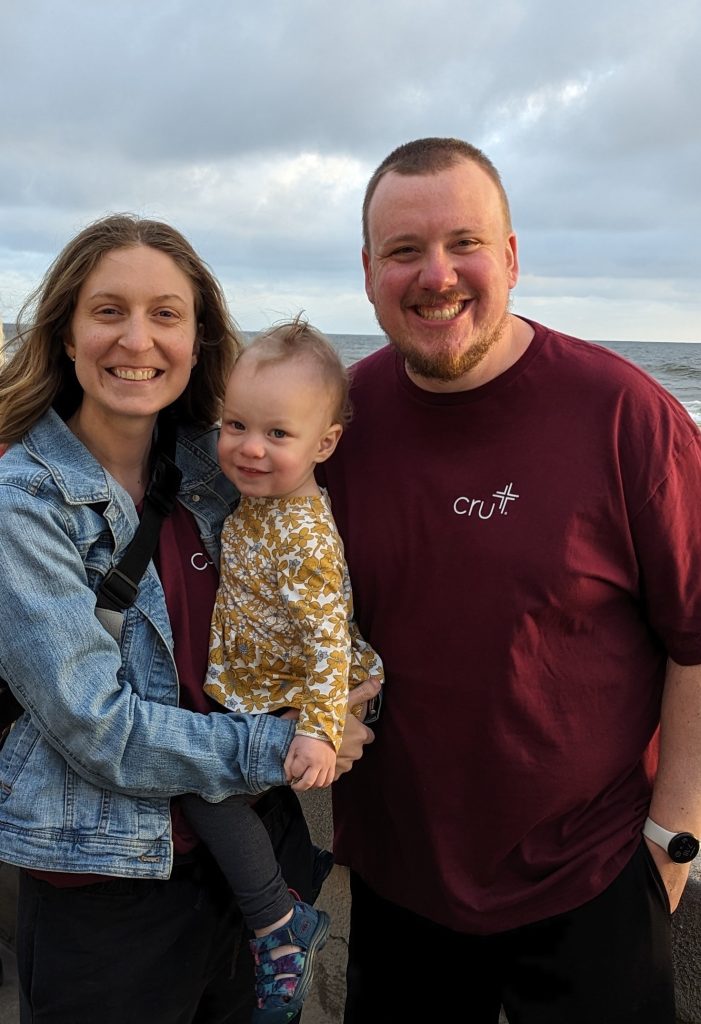
Living the rest of my life
When I was going through cancer, I feared how I might live the rest of my life. And yet God has been faithful to take care of me after cancer.
My wife and I struggled with infertility due to my chemotherapy, something many childhood cancer survivors experience. However, two years or so ago, God blessed us with a daughter named Rosalie.
As far as my leg, after surgery I regained most of the normal function. I used to run and play basketball, but after a few years it became too much, and I had to stop. Still, I’m grateful to have a functioning leg. Medicine has come a long way; if it had been 10 years earlier at the time of my surgery, they may have just amputated it.
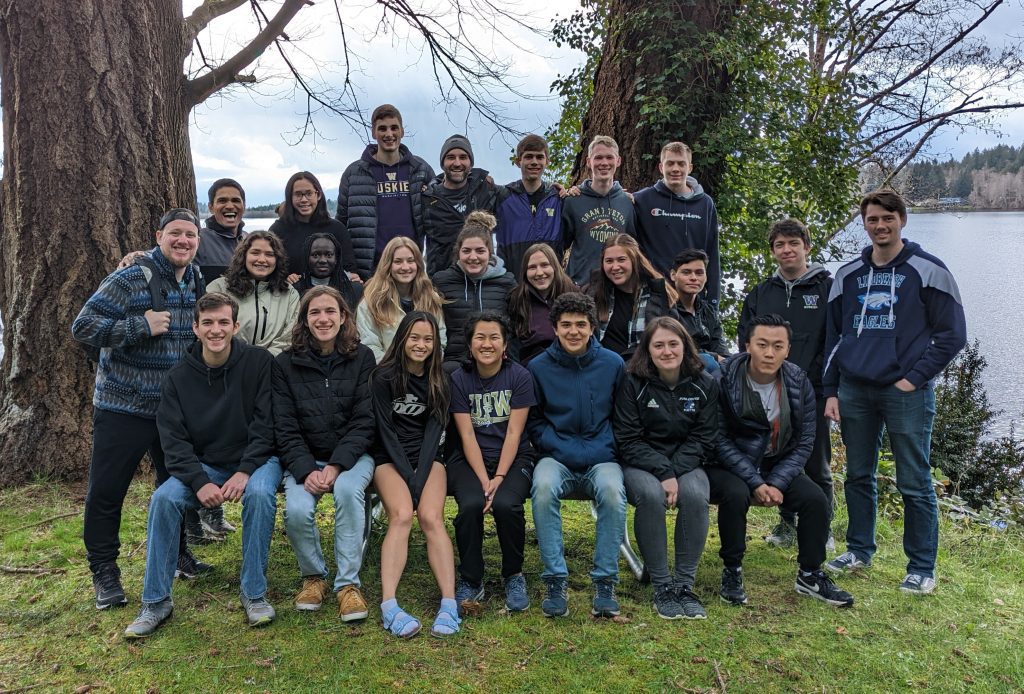
How I have changed
This journey has awakened me to what is important in life: loving those around me and experiencing God’s love.
These passions have shaped my career. For the past nine years, I have worked in full time ministry with Cru, helping college students experience life to the fullest through a relationship with Jesus.
My life’s theme verse is Galatians 2:20: “I have been crucified with Christ and I no longer live, but Christ lives in me.”
This is true of living the rest of my life after cancer. I could have died from cancer, yet I get to be here to love others and tell them that God loves them.
Advice for others
If you are going through childhood cancer, embrace your story. Know there is nothing wrong with you, even though your life may look different than another kid who didn’t go through cancer. You have value and worth as a person that cannot be taken away.
Also be willing to ask others for help. You can receive help and not have to feel guilty about it, and that also applies to a relationship with God.
I think it’s easy to not feel worthy of God’s love, or to be angry or frustrated with God because of cancer, but know he understands your struggle—perhaps more than anyone else can.
On earth, God (Jesus) experienced what it is like to be misunderstood and to feel alone, and to go through intense physical suffering when he was crucified on a cross.
Be honest with God about your suffering, and he will help you through it. He can also help you live the rest of your life after cancer—like he did for me—whether you are a childhood cancer survivor, or you have cancer as an adult.
Know that God loves you, and you can begin a relationship with him today.
For more about how to begin a relationship with God see Knowing God Personally.
To unlock the power of prayer see Asking God for Help.
For a 7-day email series on finding hope against cancer, see The Pathway to Hope.
I have a question or comment
How to find God’s hope, strength and peace

